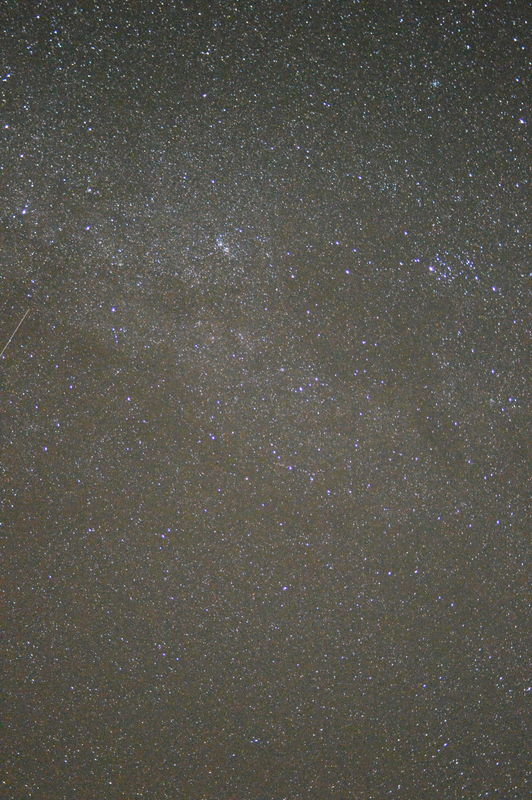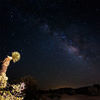Astrophotography settings
Oct 12, 2014 13:05:15 #
duaneweir
Loc: Meridian, Idaho
I am interesting in trying this type of photo shooting, but I know very little to nothing about it. I shoot a canon 70D and have these lens: canon 10-18mm f4.5-5.6 IS STM, canon 40mm f2.8 STM, canon 70-300mm f4-5.6 is USM, and 18-135mm f3.5-5.6 IS STM. Which of these would be the best for shooting the Galaxy, etc. and what would be the best settings? Thanks for your help and advice.
Oct 12, 2014 13:26:26 #
A quick search for "astrophotography settings" in Google provided these topics:
A Beginner's Guide to DSLR Astrophotography
http://www.astropix.com/BGDA/SAMPLE3/SAMPLE3.HTM
Quick Start Guide to Beginner Digital Astrophotography
http://www.astropix.com/HTML/I_ASTROP/QUICK.HTM
How-To: Astrophotography 101
http://www.popphoto.com/how-to/2008/12/how-to-astrophotography-101
How to Shoot the Night Sky (Introduction to Astrophotography)
http://digital-photography-school.com/how-to-shoot-the-night-sky-introduction-to-astrophotography/
Digital Camera Settings for Astrophotography
http://www.astropix.com/HTML/I_ASTROP/SETTINGS.HTM
Hope this helps :)
A Beginner's Guide to DSLR Astrophotography
http://www.astropix.com/BGDA/SAMPLE3/SAMPLE3.HTM
Quick Start Guide to Beginner Digital Astrophotography
http://www.astropix.com/HTML/I_ASTROP/QUICK.HTM
How-To: Astrophotography 101
http://www.popphoto.com/how-to/2008/12/how-to-astrophotography-101
How to Shoot the Night Sky (Introduction to Astrophotography)
http://digital-photography-school.com/how-to-shoot-the-night-sky-introduction-to-astrophotography/
Digital Camera Settings for Astrophotography
http://www.astropix.com/HTML/I_ASTROP/SETTINGS.HTM
Hope this helps :)
Oct 12, 2014 14:09:51 #
duaneweir
Loc: Meridian, Idaho
Wow! Shellback this is some good stuff. Thanks so much, this is really what I needed and is super helpful.
Oct 12, 2014 15:14:29 #
The widest lens you have is the 10-18, though it is a bit slow. It will give you the greatest coverage of the sky. Here is an article on lens selection and astrophotography in general. It even covers the difference of views for different sensors (FF vs APC-S).
http://petapixel.com/2014/01/29/picking-great-lens-milky-way-photography/
http://petapixel.com/2014/01/29/picking-great-lens-milky-way-photography/
duaneweir wrote:
I am interesting in trying this type of photo shooting, but I know very little to nothing about it. I shoot a canon 70D and have these lens: canon 10-18mm f4.5-5.6 IS STM, canon 40mm f2.8 STM, canon 70-300mm f4-5.6 is USM, and 18-135mm f3.5-5.6 IS STM. Which of these would be the best for shooting the Galaxy, etc. and what would be the best settings? Thanks for your help and advice.
Oct 12, 2014 15:55:24 #
duaneweir
Loc: Meridian, Idaho
Thanks robertjerl, that was also great information. I am thinking that I may have to upgrade to a better wide angle in the future. I will practice with what I have until I can afford it.
Oct 12, 2014 16:18:19 #
That 10-18 should work great, just longer exposures and getting short "star trails".
duaneweir wrote:
Thanks robertjerl, that was also great information. I am thinking that I may have to upgrade to a better wide angle in the future. I will practice with what I have until I can afford it.
Oct 13, 2014 07:05:01 #
duaneweir wrote:
I am interesting in trying this type of photo shooting, but I know very little to nothing about it. I shoot a canon 70D and have these lens: canon 10-18mm f4.5-5.6 IS STM, canon 40mm f2.8 STM, canon 70-300mm f4-5.6 is USM, and 18-135mm f3.5-5.6 IS STM. Which of these would be the best for shooting the Galaxy, etc. and what would be the best settings? Thanks for your help and advice.
The term "astrophotography" covers three primary areas. If you are photographing stars alone, a tracking mount tripod is used to compensate for the earth's rotation during long exposures. When you include the landscape, if you don't care if the stars streak, go for it, no matter how long the exposure. If you don't want the stars to streak, divide the full-frame equivalent focal length into 500 to determine the maximum number of seconds of exposure before the stars appear to streak. (Full-frame camera, 20mm lens, the maximum length of exposure would be 25 seconds.) Be sure your tripod is rock solid, and use a cable release or timer delay.
Oct 13, 2014 10:48:27 #
Preachdude wrote:
The term "astrophotography" covers three... (show quote)
This was taken with a 28 mm F2.8 and 30 seconds. Yes there is slight streaking but still looks nice.
Oct 13, 2014 15:22:09 #
duaneweir
Loc: Meridian, Idaho
Thanks Preachdude, I am interested in the Milky Way type of shots, etc. more than individual stars. I think that I should rent a more compatible lens and go from there, to the lens that I currently have. Are you a pastor?
Oct 13, 2014 15:23:45 #
duaneweir
Loc: Meridian, Idaho
Donald Johnson, thanks to you also for your interest and encouragement plus the picture.
Oct 13, 2014 19:11:34 #
OK--let's cut to the chase. Shooting the Milky Way is a tough task. You want to use a fast lens ideally 2.0 or faster (1.8, 1.4). the wider the angle the better--
Focus the lens on infinity. Set the ISO to 1600 or higher (I generally do not go above 2000. Turn on long exposure noise reduction. Set lens to fastest position and the shutter to 30 seconds. Since the widest lens you have that is fast (2.8) is 40mm I suggest you reduce your shutter to 20 seconds if you want to get sharp star points. Longer focal lengths magnify the stars and show their movement more clearly thus making them oblong in shape . Use a cable release or set the camera to timer.
I generally shoot at 1600-2000 ISO, at f2.8, and 30 seconds to 20 seconds. Focal length is nearly always at 24mm.
Here is a photo I took Friday night at these setting in the Florida everglades.
http://www.uglyhedgehog.com/t-251537-1.html
Good Luck. If you have questions send me a PM.
LArry
Focus the lens on infinity. Set the ISO to 1600 or higher (I generally do not go above 2000. Turn on long exposure noise reduction. Set lens to fastest position and the shutter to 30 seconds. Since the widest lens you have that is fast (2.8) is 40mm I suggest you reduce your shutter to 20 seconds if you want to get sharp star points. Longer focal lengths magnify the stars and show their movement more clearly thus making them oblong in shape . Use a cable release or set the camera to timer.
I generally shoot at 1600-2000 ISO, at f2.8, and 30 seconds to 20 seconds. Focal length is nearly always at 24mm.
Here is a photo I took Friday night at these setting in the Florida everglades.
http://www.uglyhedgehog.com/t-251537-1.html
Good Luck. If you have questions send me a PM.
LArry
Oct 14, 2014 07:24:16 #
duaneweir wrote:
Thanks Preachdude, I am interested in the Milky Way type of shots, etc. more than individual stars. I think that I should rent a more compatible lens and go from there, to the lens that I currently have. Are you a pastor?
I'm a retired pastor doing some writing. Other posts to this topic are covering the subject of astrophotography very well. Even landscape shots with the Milky Way are more impressive when the Milky Way is sharp. We can't photograph the stars in the daytime because of light pollution from our sun. In the same way, you'll get better pictures of the galaxy and its stars before moonrise, after moonset, and during a few days either side of the new moon. Have fun!
Oct 14, 2014 08:38:31 #
duaneweir wrote:
I am interesting in trying this type of photo shooting, but I know very little to nothing about it. I shoot a canon 70D and have these lens: canon 10-18mm f4.5-5.6 IS STM, canon 40mm f2.8 STM, canon 70-300mm f4-5.6 is USM, and 18-135mm f3.5-5.6 IS STM. Which of these would be the best for shooting the Galaxy, etc. and what would be the best settings? Thanks for your help and advice.
You are in a good spot for Milky Way photos, head out of town a bit for dark skies and enjoy the view. :-)
Your 10-18 will work to get you started. It will give you ~106° angle of view. It is a little slower than optimum, but it will give you something to start with.
Here are a few that I made a f3.5, with skies not nearly as dark as you can get to in an hour!
http://www.uglyhedgehog.com/t-247258-1.html
Best advice, go out and shoot :-) doesn't cost anything, so if you don't like the results, no biggie.
GT
If you want to reply, then register here. Registration is free and your account is created instantly, so you can post right away.





